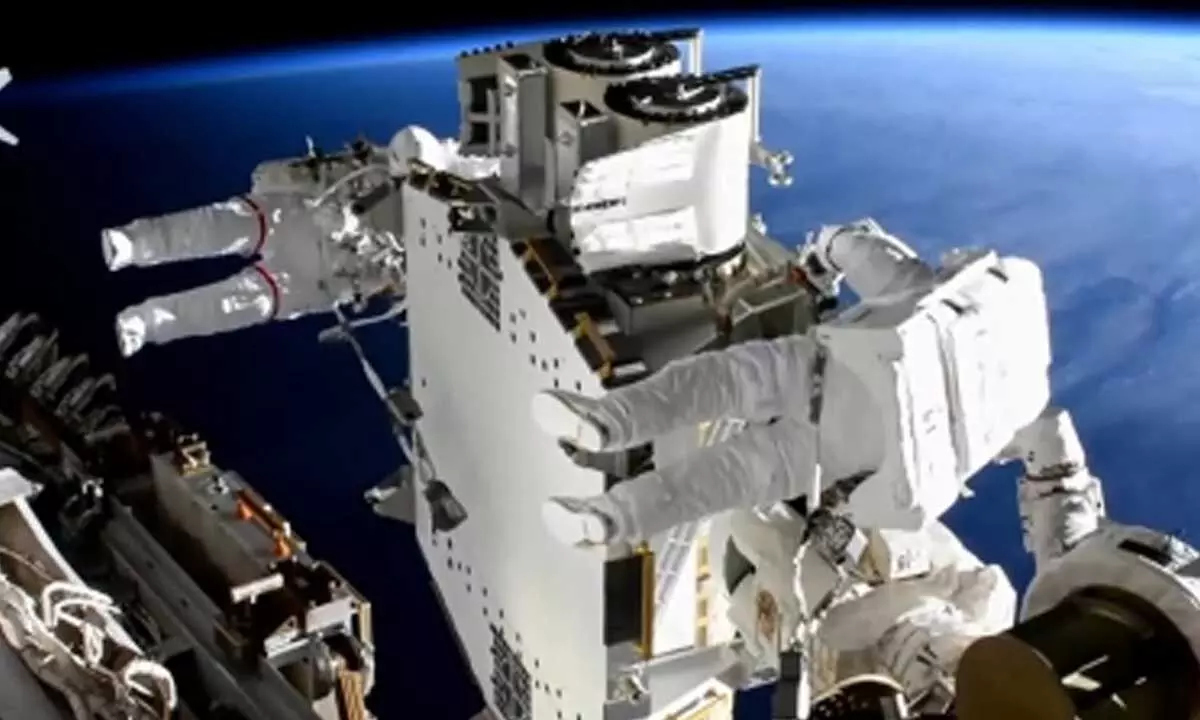How extended space flights affect astronauts' brains

How extended space flights affect astronauts' brains (Photo/IANS)
Long-duration space flight can alter fluid-filled spaces along veins and arteries in the brain, according to new research.
New York: Long-duration space flight can alter fluid-filled spaces along veins and arteries in the brain, according to new research.
Researchers from Oregon Health & Science University (OHSU) imaged the brains of 15 astronauts before and after extended tours of duty on the International Space Station (ISS).
"The findings have important implications as we continue space exploration," said Juan Piantino, Assistant Professor of Paediatrics (Neurology) in the OHSU School of Medicine.
"It also forces you to think about some basic fundamental questions of science and how life evolved here on Earth."
The team used magnetic resonance imaging to measure perivascular space - or the space around blood vessels - in the brains of astronauts prior to their launch and again immediately after their return.
They also took MRI measurements again at one, three, and six months after they had returned. Astronauts' images were compared with those taken of the same perivascular space in the brains of 16 Earth-bound control subjects.
Comparing before and after images, they found an increase in the perivascular spaces within the brains of first-time astronauts, but no difference among astronauts who previously served aboard the space station orbiting earth.
It is because experienced astronauts may have reached some kind of homeostasis - a self-regulating process by which biological systems maintain stability while adjusting to changing external conditions, said Piantino, in the paper published in the journal Scientific Reports.
In all cases, scientists found no problems with balance or visual memories that might suggest neurological deficits among astronauts, despite the differences measured in the perivascular spaces of their brains.
Further, the team decided to find out by measuring perivascular spaces, where cerebrospinal fluid flows in the brain.
These spaces are integral to a natural system of brain cleansing that occurs during sleep. Enlargement of these spaces occurs in ageing, and also has been associated with the development of dementia.
Researchers used a technique to measure changes in these perivascular spaces through MRI scans.
Piantino said the study could be valuable in helping to diagnose and treat Earth-bound disorders involving cerebrospinal fluid, such as hydrocephalus.
"These findings not only help to understand fundamental changes that happen during space flight, but also for people on Earth who suffer from diseases that affect circulation of cerebrospinal fluid," Piantino said.








